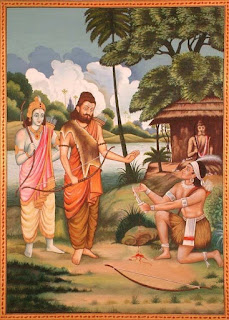Eklavya's Story and the Modern Age of Self-Learning
Eklavya: A Timeless Story of Self-Learning & Respect
In the ancient Indian epic, the Mahabharata, the story of Eklavya stands out as a powerful symbol of dedication, self-learning, and sacrifice. Eklavya, a young tribal prince, aspired to become an expert archer under the tutelage of the great teacher Dronacharya. However, due to his social status, he was denied formal education. Undeterred, Eklavya created a statue of Dronacharya and practiced archery on his own. His story proves that learning is not confined to classrooms; with determination and self-teaching, one can master any skill.
The Story of Eklavya and Guru Dakshina
Eklavya's persistence is a striking reminder of the power of self-reliance. Despite Dronacharya's refusal to teach him, Eklavya carved a statue of the Guru and practiced relentlessly. His skills became so advanced that even Dronacharya couldn’t ignore them. When he discovered Eklavya’s talent, he demanded a Guru Dakshina: Eklavya’s right thumb. In a supreme act of respect, Eklavya sacrificed it without hesitation. This moment embodies the depth of devotion and the profound cost of learning.
Key Learning Lessons from Eklavya’s Story
- Learning by Doing: Eklavya didn’t wait for formal permission. He made use of what he had. Today, self-paced courses, YouTube, and digital tools allow anyone to learn independently.
- Dedication and Focus: In an age of distraction, his single-mindedness is a lesson. Tools like goal-setting apps and journals can help us stay on track.
- Respect for Mentors: Even without formal lessons, Eklavya revered Dronacharya. Learning can come from books, peers, or online mentors—if we approach it with respect.
- The Value of Sacrifice: True learning often requires letting go—of time, comfort, or ego—to gain something deeper.
Traditional Schooling vs. Unschooling
Eklavya’s tale relates directly to today’s educational debates:
Traditional Schooling:
- Offers structured learning
- Fosters peer interaction and socialization
Unschooling:
- Encourages self-paced, interest-based exploration
- Offers ownership but requires intentional structure to avoid gaps
Blended Learning: Eklavya shows us that learning can be personalized. The ideal is not either/or—it’s both/and.
The Role of Modern Platforms
YouTube, WhatsApp, and AI-driven content offer vast learning opportunities—but also distractions and misinformation. We must learn to curate wisely, consume consciously, and create ethically.
Personal Reflection
My father once told me, “Apply medicine, clean the wound, and keep going.” That spirit of resilience is learning in its truest form. Like Eklavya, we too must stay the course—even without applause, even without a classroom.
Conclusion
Eklavya’s story reminds us: It’s not just what you learn—it’s how and why. The core values of focus, humility, dedication, and self-direction remain relevant in all times. Technology may change, but timeless wisdom never fades.
✨ How do you use your knowledge to make the world better? What sacrifice are you willing to make for your growth?

.jpeg)



Comments